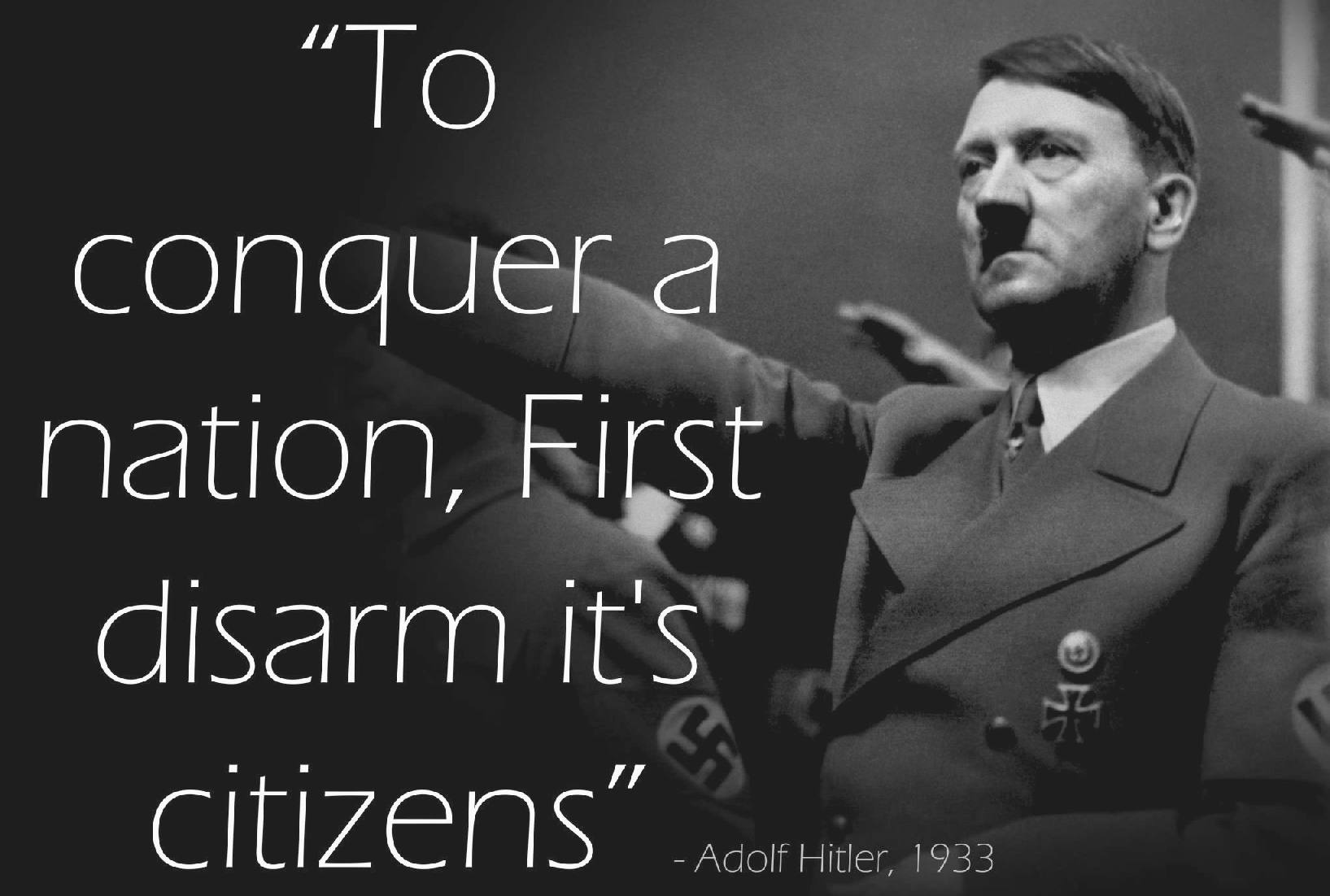
Struggle is the father of all things. It is not by the principles of humanity that man lives or is able to preserve himself above the animal world, but
solely by means of the most brutal struggle. If you do not fight, life will never be won. -
Adolf Hitler -
Take
a look at the Act below and contrast it with the European Convention of
Human Rights, or the Universal Declaration of Human Rights, and you will
see the rot setting in. The UK bangs the equality drum, but in reality
is more like a Police State in the way it operates, according to cases
that we are following and cite as examples. Ultimately, the ruling
monarch is responsible for appointing a Government that provides an
effective administration. Clearly, that is not the case as of June 2020.
An Act to give further effect to rights and freedoms guaranteed under the European Convention on Human Rights; to make provision with respect to holders of certain judicial offices who become judges of the European Court of Human Rights; and for connected purposes.
[9th November 1998]
Though
the Act says one thing, in reality, the UK agenda appears to be to limit
the effectiveness (force of law) of this statute when coupled with legal
aid cuts and the sway held over the judges by (for example) the honours
system and the prevalence of secret societies like the masons among the
ranks of the CPS, police and judges. Where there should be no such
interference. Judges should go into courtrooms with clean hands, as
should prosecutors and police officers.
The
other matter of extreme concern is that there is no Written Constitution
in the UK. This means that laws can be re-written for each case that
goes before the Courts - to suit the agenda of the Crown.
In
practice then, what appears on the surface to be a democratic monarchy,
is actually a system controlled by the State for the State, where the
wealth (and connections) of the victims of the system is a major factor,
in violation of Article 14.
Another
issue is that the police are not accountable. There is no authority to
check on corrupt police forces. The police are funded by Councils and
have close ties with their funding authority, such that favours are
common. Hence, local police turning a blind eye to corruption in
Councils, where huge sums of money are at stake when determining land
values. Such control that discriminates, is institutional.
As
with planning corruption, the police can pervert the course of justice
by not investigating a crime scene fully, or at all. Or even turning a
blind eye to inconvenient evidence. Hence, where there is evidence of
negligent investigations, or where only partial evidence is made
available to the defence in a criminal case, that is tantamount to fraud
and/or conspiracy to pervert the course of justice.
NO
EFFECTIVE REMEDY
The
fact that there is no Article 1 and no article 13 in the HRA98, is an
admission of the dilution of the rights of the citizens, such as with
the single judge system that denies the right of appeal in criminal
cases.
Without
an effective remedy, the remainder of the HRA98 is relatively worthless,
more of a window dressing exercise for the Commonwealth, to make the UK
look good on the world stage. As a country purporting to be civilised,
Britain should be ashamed of its Human Rights record.
OTHER
REMEDIES
TAKING
A CASE TO EUROPE
The
European Court rejects most cases without giving any reasons. As such
this court is not transparent in SDG terms, violating the right to an
effective remedy as contained within the convention. This Court must know that in England there is no
effective remedy. As most applications are from victims of injustice
without any legal training and with few facilities, the European Court
operates in a way they know causes injustice.
This
must surely be a matter for the International Court of Justice, as part
of a claim to a violation of the Universal
Declaration of Human Rights.
THE
UNITED NATIONS INTERNATIONAL COURT OF JUSTICE
This
is the last vestige of hope for victims of UK/European inhumanity.
BE IT ENACTED by the
Queen's most Excellent
Majesty, by and with the advice and consent of the Lords Spiritual and Temporal, and Commons, in this present Parliament assembled, and by the authority of the same, as follows:-
Introduction
The Convention Rights.
1.
- (1) In this Act "the Convention rights" means the rights and
fundamental freedoms set out in-
(a) Articles 2 to 12 and 14 of the Convention,
(b) Articles 1 to 3 of the First Protocol, and
(c) Articles 1 and 2 of the Sixth Protocol,
as read with Articles 16 to 18 of the Convention.
(2) Those Articles are to have effect for the purposes of this Act
subject to any designated derogation or reservation (as to which see
sections 14 and 15).
(3) The Articles are set out in Schedule 1.
(4) The Secretary of State may by order make such amendments to this Act
as he considers appropriate to reflect the effect, in relation to the
United Kingdom, of a protocol.
(5) In subsection (4) "protocol" means a protocol to the
Convention-
(a) which the United Kingdom has ratified; or
(b) which the United Kingdom has signed with a view to
ratification.
(6) No amendment may be made by an order under subsection (4) so as to
come into force before the protocol concerned is in force in relation to
the United Kingdom.
Interpretation of Convention rights.
2.
- (1) A court or tribunal determining a question which has arisen in
connection with a Convention right must take into account any-
(a) judgment, decision, declaration or advisory opinion of the European
Court of Human Rights,
(b) opinion of the Commission given in a report adopted under Article 31
of the Convention,
(c) decision of the Commission in connection with Article 26 or 27(2) of
the Convention, or
(d) decision of the Committee of Ministers taken under Article 46 of the
Convention,
whenever made or given, so far as, in the opinion of the court or
tribunal, it is relevant to the proceedings in which that question has
arisen.
(2) Evidence of any judgment, decision, declaration or opinion of which
account may have to be taken under this section is to be given in
proceedings before any court or tribunal in such manner as may be
provided by rules.
(3) In this section "rules" means rules of court or, in the
case of proceedings before a tribunal, rules made for the purposes of
this section-
(a) by the Lord Chancellor or the Secretary of State, in relation to any
proceedings outside Scotland;
(b) by the Secretary of State, in relation to proceedings in Scotland;
or
(c) by a Northern Ireland department, in relation to proceedings before
a tribunal in Northern Ireland-
(i) which deals with transferred matters; and
(ii) for which no rules made under paragraph (a) are in force.
Legislation
Interpretation
of legislation.
3. - (1) So far as it is possible to do so, primary legislation and
subordinate legislation must be read and given effect in a way which is
compatible with the Convention rights.
(2) This section-
(a) applies to primary legislation and subordinate legislation whenever
enacted;
(b) does not affect the validity, continuing operation or enforcement of
any incompatible primary legislation; and
(c) does not affect the validity, continuing operation or enforcement of
any incompatible subordinate legislation if (disregarding any
possibility of revocation) primary legislation prevents removal of the
incompatibility.
Declaration of incompatibility.
4. - (1) Subsection (2) applies in any proceedings in which a court
determines whether a provision of primary legislation is compatible with
a Convention right.
(2) If the court is satisfied that the provision is incompatible with a
Convention right, it may make a declaration of that incompatibility.
(3) Subsection (4) applies in any proceedings in which a court
determines whether a provision of subordinate legislation, made in the
exercise of a power conferred by primary legislation, is compatible with
a Convention right.
(4) If the court is satisfied -
(a) that the provision is incompatible with a Convention right,
and
(b) that (disregarding any possibility of revocation) the primary
legislation concerned prevents removal of the incompatibility,
it may make a declaration of that incompatibility.
(5) In this section "court" means-
(a) the House of Lords;
(b) the Judicial Committee of the Privy Council;
(c) the Courts-Martial Appeal Court;
(d) in Scotland, the High Court of Justiciary sitting otherwise than as
a trial court or the Court of Session;
(e) in England and Wales or Northern Ireland, the High Court or the
Court of Appeal.
(6) A declaration under this section ("a declaration of
incompatibility")-
(a) does not affect the validity, continuing operation or enforcement of
the provision in respect of which it is given; and
(b) is not binding on the parties to the proceedings in which it is
made.
Right of Crown to intervene.
5. - (1) Where a court is considering whether to make a declaration of
incompatibility, the Crown is entitled to notice in accordance with
rules of court.
(2) In any case to which subsection (1) applies-
(a) a Minister of the Crown (or a person nominated by him),
(b) a member of the Scottish Executive,
(c) a Northern Ireland Minister,
(d) a Northern Ireland department,
is entitled, on giving notice in accordance with rules of court, to be
joined as a party to the proceedings.
(3) Notice under subsection (2) may be given at any time during the
proceedings.
(4) A person who has been made a party to criminal proceedings (other
than in Scotland) as the result of a notice under subsection (2) may,
with leave, appeal to the House of Lords against any declaration of
incompatibility made in the proceedings.
(5) In subsection (4)-
"criminal proceedings" includes all proceedings before the
Courts-Martial Appeal Court; and
"leave" means leave granted by the court making the
declaration of incompatibility or by the House of Lords.
Public authorities
Acts of public authorities.
6.
- (1) It is unlawful for a public authority to act in a way which is
incompatible with a Convention right.
(2) Subsection (1) does not apply to an act if-
(a) as the result of one or more provisions of primary legislation, the
authority could not have acted differently; or
(b) in the case of one or more provisions of, or made under, primary
legislation which cannot be read or given effect in a way which is
compatible with the Convention rights, the authority was acting so as to
give effect to or enforce those provisions.
(3) In this section "public authority" includes-
(a) a court or tribunal, and
(b) any person certain of whose functions are functions of a public
nature,
but does not include either House of Parliament or a person exercising
functions in connection with proceedings in Parliament.
(4) In subsection (3) "Parliament" does not include the House
of Lords in its judicial capacity.
(5) In relation to a particular act, a person is not a public authority
by virtue only of subsection (3)(b) if the nature of the act is private.
(6) "An act" includes a failure to act but does not include a
failure to-
(a) introduce in, or lay before, Parliament a proposal for legislation;
or
(b) make any primary legislation or remedial order.
Proceedings.
7. - (1) A person who claims that a public authority has acted (or
proposes to act) in a way which is made unlawful by section 6(1) may -
(a) bring proceedings against the authority under this Act in the
appropriate court or tribunal, or
(b) rely on the Convention right or rights concerned in any legal
proceedings,
but only if he is (or would be) a victim of the unlawful act.
(2) In subsection (1)(a) "appropriate court or tribunal" means
such court or tribunal as may be determined in accordance with rules;
and proceedings against an authority include a counterclaim or similar
proceeding.
(3) If the proceedings are brought on an application for judicial
review, the applicant is to be taken to have a sufficient interest in
relation to the unlawful act only if he is, or would be, a victim of
that act.
(4) If the proceedings are made by way of a petition for judicial review
in Scotland, the applicant shall be taken to have title and interest to
sue in relation to the unlawful act only if he is, or would be, a victim
of that act.
(5) Proceedings under subsection (1)(a) must be brought before the end
of-
(a) the period of one year beginning with the date on which the act
complained of took place; or
(b) such longer period as the court or tribunal considers equitable
having regard to all the circumstances,
but that is subject to any rule imposing a stricter time limit in
relation to the procedure in question.
(6) In subsection (1)(b) "legal proceedings" includes-
(a) proceedings brought by or at the instigation of a public authority;
and
(b) an appeal against the decision of a court or tribunal.
(7) For the purposes of this section, a person is a victim of an
unlawful act only if he would be a victim for the purposes of Article 34
of the Convention if proceedings were brought in the European Court of
Human Rights in respect of that act.
(8) Nothing in this Act creates a criminal offence.
(9) In this section "rules" means-
(a) in relation to proceedings before a court or tribunal outside
Scotland, rules made by the Lord Chancellor or the Secretary of State
for the purposes of this section or rules of court,
(b) in relation to proceedings before a court or tribunal in Scotland,
rules made by the Secretary of State for those purposes,
(c) in relation to proceedings before a tribunal in Northern
Ireland-
(i) which deals with transferred matters; and
(ii) for which no rules made under paragraph (a) are in force,
rules made by a Northern Ireland department for those purposes,
and includes provision made by order under section 1 of the Courts and
Legal Services Act 1990.
(10) In making rules, regard must be had to section 9.
(11) The Minister who has power to make rules in relation to a
particular tribunal may, to the extent he considers it necessary to
ensure that the tribunal can provide an appropriate remedy in relation
to an act (or proposed act) of a public authority which is (or would be)
unlawful as a result of section 6(1), by order add to-
(a) the relief or remedies which the tribunal may grant; or
(b) the grounds on which it may grant any of them.
(12) An order made under subsection (11) may contain such incidental,
supplemental, consequential or transitional provision as the Minister
making it considers appropriate.
(13) "The Minister" includes the Northern Ireland department
concerned.
Judicial remedies.
8. - (1) In relation to any act (or proposed act) of a public authority
which the court finds is (or would be) unlawful, it may grant such
relief or remedy, or make such order, within its powers as it considers
just and appropriate.
(2) But damages may be awarded only by a court which has power to award
damages, or to order the payment of compensation, in civil proceedings.
(3) No award of damages is to be made unless, taking account of all the
circumstances of the case, including-
(a) any other relief or remedy granted, or order made, in relation to
the act in question (by that or any other court), and
(b) the consequences of any decision (of that or any other court) in
respect of that act,
the court is satisfied that the award is necessary to afford just
satisfaction to the person in whose favour it is made.
(4) In determining-
(a) whether to award damages, or
(b) the amount of an award,
the court must take into account the principles applied by the European
Court of Human Rights in relation to the award of compensation under
Article 41 of the Convention.
(5) A public authority against which damages are awarded is to be
treated-
(a) in Scotland, for the purposes of section 3 of the Law Reform
(Miscellaneous Provisions) (Scotland) Act 1940 as if the award were made
in an action of damages in which the authority has been found liable in
respect of loss or damage to the person to whom the award is made;
(b) for the purposes of the Civil Liability (Contribution) Act 1978 as
liable in respect of damage suffered by the person to whom the award is
made.
(6) In this section-
"court" includes a tribunal;
"damages" means damages for an unlawful act of a public
authority; and
"unlawful" means unlawful under section 6(1).
S C H E D U L E S
Schedule 1
THE ARTICLES
PART I
THE CONVENTION
ARTICLE 1 - THERE
IS NO ARTICLE 1
RIGHTS AND FREEDOMS
ARTICLE 2
RIGHT TO LIFE
1. Everyone's right to life shall be protected by law. No one shall be deprived of his life intentionally save in the execution of a sentence of a court following his conviction of a crime for which this penalty is provided by law.
2. Deprivation of life shall not be regarded as inflicted in contravention of this Article when it results from the use of force which is no more than absolutely necessary:
(a) in defence of any person from unlawful violence;
(b) in order to effect a lawful arrest or to prevent the escape of a person lawfully detained;
(c) in action lawfully taken for the purpose of quelling a riot or insurrection.
ARTICLE 3
PROHIBITION OF TORTURE
No one shall be subjected to torture or to inhuman or degrading treatment or punishment.
ARTICLE 4
PROHIBITION OF SLAVERY AND FORCED LABOUR
1. No one shall be held in slavery or servitude.
2. No one shall be required to perform forced or compulsory labour.
3. For the purpose of this Article the term "forced or compulsory labour" shall not include:
(a) any work required to be done in the ordinary course of detention imposed according to the provisions of Article 5 of this Convention or during conditional release from such detention;
(b) any service of a military character or, in case of conscientious objectors in countries where they are recognised, service exacted instead of compulsory military service;
(c) any service exacted in case of an emergency or calamity threatening the life or well-being of the community;
(d) any work or service which forms part of normal civic obligations.
ARTICLE 5
RIGHT TO LIBERTY AND SECURITY
1. Everyone has the right to liberty and security of person. No one shall be deprived of his liberty save in the following cases and in accordance with a procedure prescribed by law:
(a) the lawful detention of a person after conviction by a competent court;
(b) the lawful arrest or detention of a person for non-compliance with the lawful order of a court or in order to secure the fulfilment of any obligation prescribed by law;
(c) the lawful arrest or detention of a person effected for the purpose of bringing him before the competent legal authority on reasonable suspicion of having committed an offence or when it is reasonably considered necessary to prevent his committing an offence or fleeing after having done so;
(d) the detention of a minor by lawful order for the purpose of educational supervision or his lawful detention for the purpose of bringing him before the competent legal authority;
(e) the lawful detention of persons for the prevention of the spreading of infectious diseases, of persons of unsound mind, alcoholics or drug addicts or vagrants;
(f) the lawful arrest or detention of a person to prevent his effecting an unauthorised entry into the country or of a person against whom action is being taken with a view to deportation or extradition.
2. Everyone who is arrested shall be informed promptly, in a language which he understands, of the reasons for his arrest and of any charge against him.
3. Everyone arrested or detained in accordance with the provisions of paragraph 1(c) of this Article shall be brought promptly before a judge or other officer authorised by law to exercise judicial power and shall be entitled to trial within a reasonable time or to release pending trial. Release may be conditioned by guarantees to appear for trial.
4. Everyone who is deprived of his liberty by arrest or detention shall be entitled to take proceedings by which the lawfulness of his detention shall be decided speedily by a court and his release ordered if the detention is not lawful.
5. Everyone who has been the victim of arrest or detention in contravention of the provisions of this Article shall have an enforceable right to compensation.
ARTICLE 6
RIGHT TO A FAIR TRIAL
1. In the determination of his civil rights and obligations or of any criminal charge against him, everyone is entitled to a fair and public hearing within a reasonable time by an independent and impartial tribunal established by law. Judgment shall be pronounced publicly but the press and public may be excluded from all or part of the trial in the interest of morals, public order or national security in a democratic society, where the interests of juveniles or the protection of the private life of the parties so require, or to the extent strictly necessary in the opinion of the court in special circumstances where publicity would prejudice the interests of justice.
2. Everyone charged with a criminal offence shall be presumed innocent until proved guilty according to law.
3. Everyone charged with a criminal offence has the following minimum rights:
(a) to be informed promptly, in a language which he understands and in detail, of the nature and cause of the accusation against him;
(b) to have adequate time and facilities for the preparation of his defence;
(c) to defend himself in person or through legal assistance of his own choosing or, if he has not sufficient means to pay for legal assistance, to be given it free when the interests of justice so require;
(d) to examine or have examined witnesses against him and to obtain the attendance and examination of witnesses on his behalf under the same conditions as witnesses against him;
(e) to have the free assistance of an interpreter if he cannot understand or speak the language used in court.
ARTICLE 7
NO PUNISHMENT WITHOUT LAW
1. No one shall be held guilty of any criminal offence on account of any act or omission which did not constitute a criminal offence under national or international law at the time when it was committed. Nor shall a heavier penalty be imposed than the one that was applicable at the time the criminal offence was committed.
2. This Article shall not prejudice the trial and punishment of any person for any act or omission which, at the time when it was committed, was criminal according to the general principles of law recognised by civilised nations.
ARTICLE 8
RIGHT TO RESPECT FOR PRIVATE AND FAMILY LIFE
1. Everyone has the right to respect for his private and family life, his home and his correspondence.
2. There shall be no interference by a public authority with the exercise of this right except such as is in accordance with the law and is necessary in a democratic society in the interests of national security, public safety or the economic well-being of the country, for the prevention of disorder or crime, for the protection of health or morals, or for the protection of the rights and freedoms of others.
ARTICLE 9
FREEDOM OF THOUGHT, CONSCIENCE AND RELIGION
1. Everyone has the right to freedom of thought, conscience and religion; this right includes freedom to change his religion or belief and freedom, either alone or in community with others and in public or private, to manifest his religion or belief, in worship, teaching, practice and observance.
2. Freedom to manifest one's religion or beliefs shall be subject only to such limitations as are prescribed by law and are necessary in a democratic society in the interests of public safety, for the protection of public order, health or morals, or for the protection of the rights and freedoms of others.
ARTICLE 10
FREEDOM OF EXPRESSION
1. Everyone has the right to freedom of expression. This right shall include freedom to hold opinions and to receive and impart information and ideas without interference by public authority and regardless of frontiers. This Article shall not prevent States from requiring the licensing of broadcasting, television or cinema enterprises.
2. The exercise of these freedoms, since it carries with it duties and responsibilities, may be subject to such formalities, conditions, restrictions or penalties as are prescribed by law and are necessary in a democratic society, in the interests of national security, territorial integrity or public safety, for the prevention of disorder or crime, for the protection of health or morals, for the protection of the reputation or rights of others, for preventing the disclosure of information received in confidence, or for maintaining the authority and impartiality of the judiciary.
ARTICLE 11
FREEDOM OF ASSEMBLY AND ASSOCIATION
1. Everyone has the right to freedom of peaceful assembly and to freedom of association with others, including the right to form and to join trade unions for the protection of his interests.
2. No restrictions shall be placed on the exercise of these rights other than such as are prescribed by law and are necessary in a democratic society in the interests of national security or public safety, for the prevention of disorder or crime, for the protection of health or morals or for the protection of the rights and freedoms of others. This Article shall not prevent the imposition of lawful restrictions on the exercise of these rights by members of the armed forces, of the police or of the administration of the State.
ARTICLE 12
RIGHT TO MARRY
Men and women of marriageable age have the right to marry and to found a family, according to the national laws governing the exercise of this right.
ARTICLE 13 -
THERE IS NO ARTICLE 13
The
right to an effective remedy.
ARTICLE 14
PROHIBITION OF DISCRIMINATION
The enjoyment of the rights and freedoms set forth in this Convention shall be secured without discrimination on any ground such as sex, race, colour, language, religion, political or other opinion, national or social origin, association with a national minority, property, birth or other status.
ARTICLE
15 - THERE IS NO ARTICLE 15
Derogation
in time of emergency.
ARTICLE 16
RESTRICTIONS ON POLITICAL ACTIVITY OF ALIENS
Nothing in Articles 10, 11 and 14 shall be regarded as preventing the High Contracting Parties from imposing restrictions on the political activity of aliens.
ARTICLE 17
PROHIBITION OF ABUSE OF RIGHTS
Nothing in this Convention may be interpreted as implying for any State, group or person any right to engage in any activity or perform any act aimed at the destruction of any of the rights and freedoms set forth herein or at their limitation to a greater extent than is provided for in the Convention.
ARTICLE 18
LIMITATION ON USE OF RESTRICTIONS ON RIGHTS
The restrictions permitted under this Convention to the said rights and freedoms shall not be applied for any purpose other than those for which they have been prescribed.
S C H E D U L E S
Schedule 1 continued
THE ARTICLES - PART II
THE CONVENTION
THE FIRST PROTOCOL
ARTICLE 1
PROTECTION OF PROPERTY
Every natural or legal person is entitled to the peaceful enjoyment of his possessions. No one shall be deprived of his possessions except in the public interest and subject to the conditions provided for by law and by the general principles of international law.
The preceding provisions shall not, however, in any way impair the right of a State to enforce such laws as it deems necessary to control the use of property in accordance with the general interest or to secure the payment of taxes or other contributions or penalties.
ARTICLE 2
RIGHT TO EDUCATION
No person shall be denied the right to education. In the exercise of any functions which it assumes in relation to education and to teaching, the State shall respect the right of parents to ensure such education and teaching in conformity with their own religious and philosophical convictions.
ARTICLE 3
RIGHT TO FREE ELECTIONS
The High Contracting Parties undertake to hold free elections at reasonable intervals by secret ballot, under conditions which will ensure the free expression of the opinion of the people in the choice of the legislature.
S C H E D U L E S
Schedule 1 continued
THE ARTICLES
PART III
THE CONVENTION
THE SIXTH PROTOCOL
ARTICLE 1
ABOLITION OF THE DEATH PENALTY
The death penalty shall be abolished. No one shall be condemned to such penalty or executed.
ARTICLE 2
DEATH PENALTY IN TIME OF WAR
A State may make provision in its law for the death penalty in respect of acts committed in time of war or of imminent threat of war; such penalty shall be applied only in the instances laid down in the law and in accordance with its provisions. The State shall communicate to the Secretary General of the Council of Europe the relevant provisions of that law.
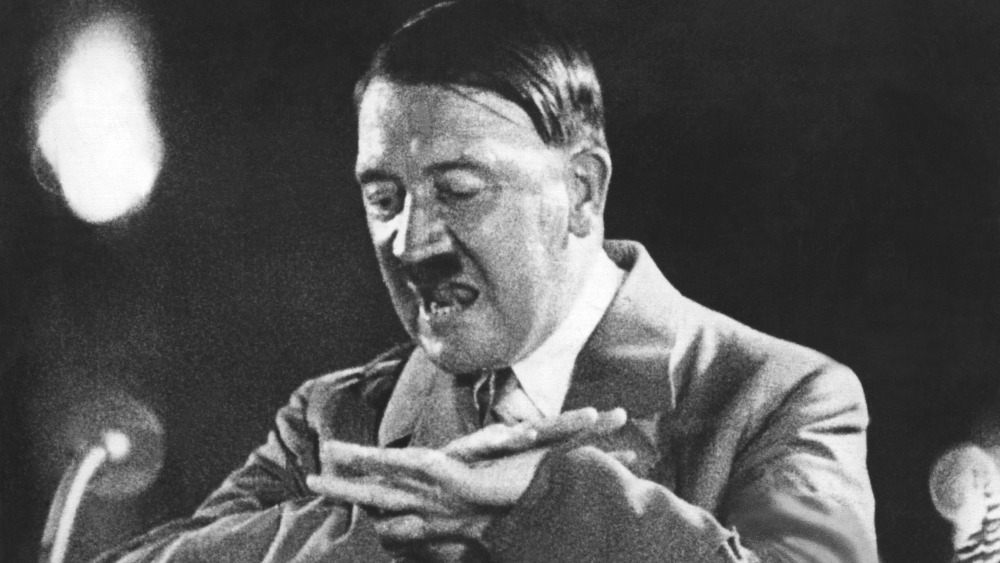
FREEDOM
OF THOUGHT AND SPEECH
- This website is protected by
Articles 9 and 10 of the European Convention of Human Rights and Fundamental
Freedoms. The Injustice Alliance avers that the right to impart information
is a right, no matter that the method of communication is unpalatable to the
State.
|
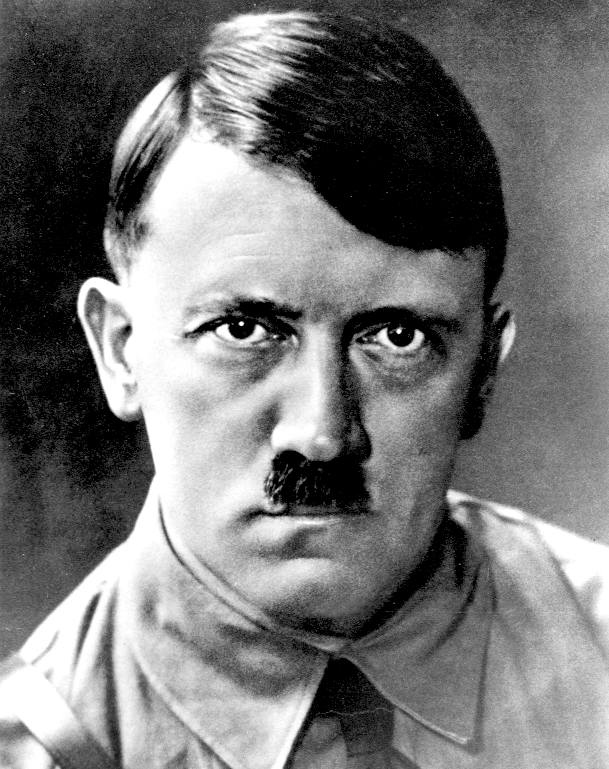
Adolf
Hitler
German
Chancellor
|
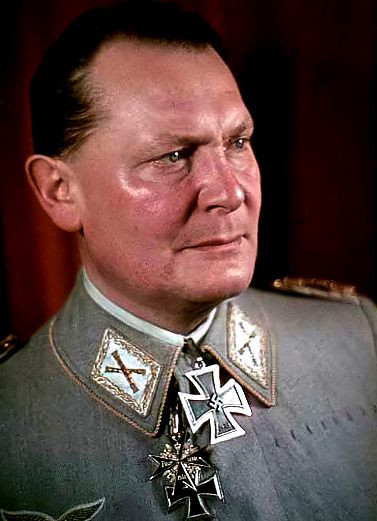
Herman
Goring
Reichsmarschall
Luftwaffe
|
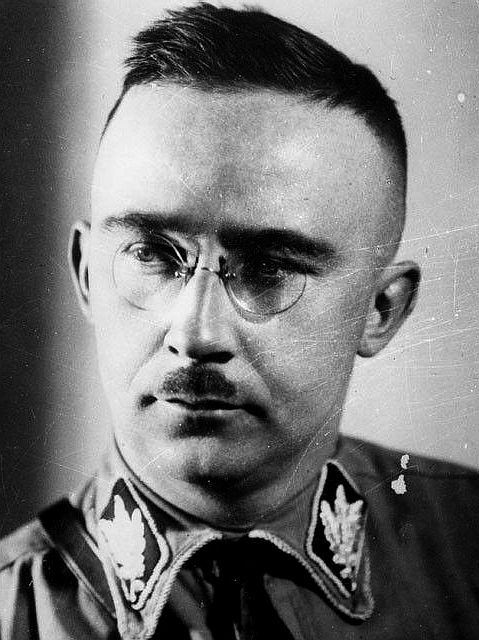
Heinrich
Himmler
Reichsführer
Schutzstaffel
|

Joseph
Goebbels
Reich
Minister Propaganda
|
|
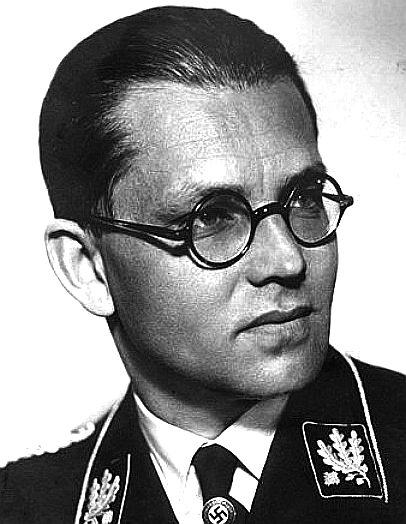
Philipp
Bouhler SS
NSDAP
Aktion T4
|

Dr
Josef Mengele
Physician
Auschwitz
|
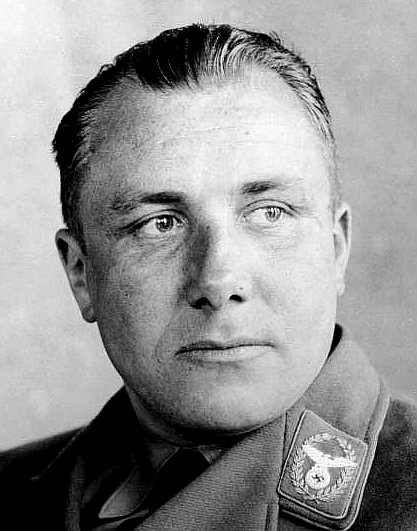
Martin
Borman
Schutzstaffel
|
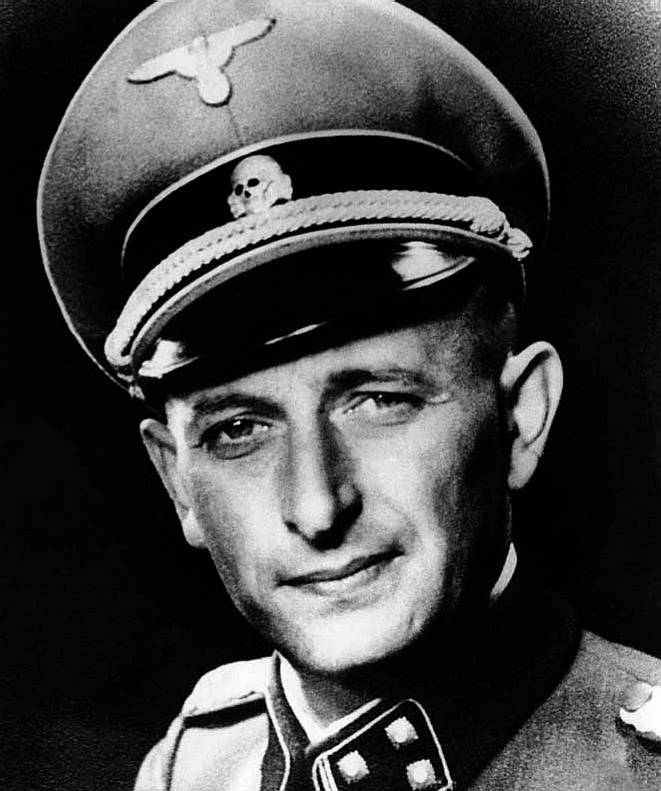
Adolph
Eichmann
Holocaust
Architect
|
|
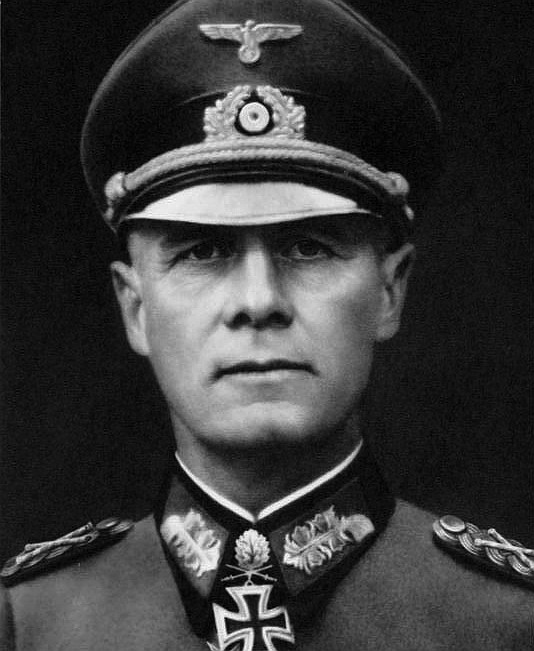
Erwin
Rommel
The
Desert Fox
|
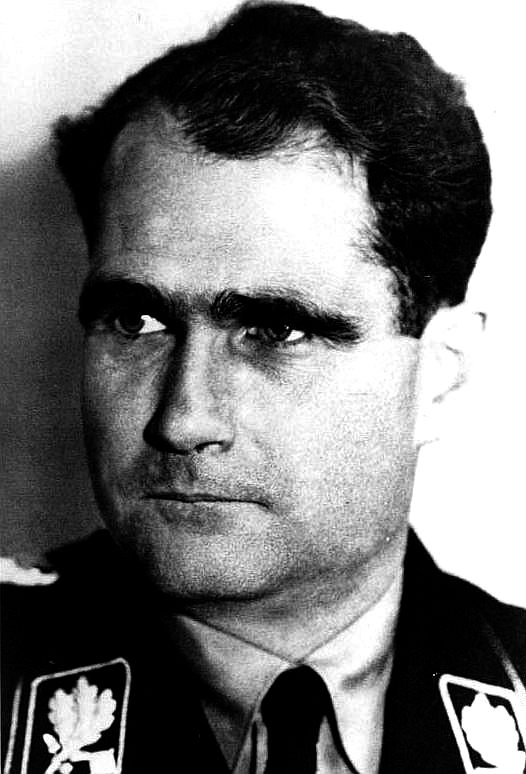
Rudolf
Hess
Auschwitz
Commandant
|
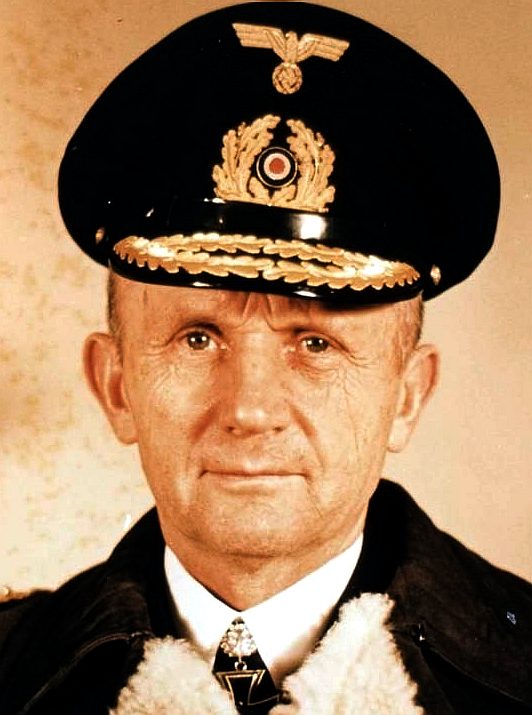
Karl
Donitz
Submarine
Commander
|

Albert
Speer
Nazi
Architect
|
Please use our
A-Z INDEX to
navigate this site













